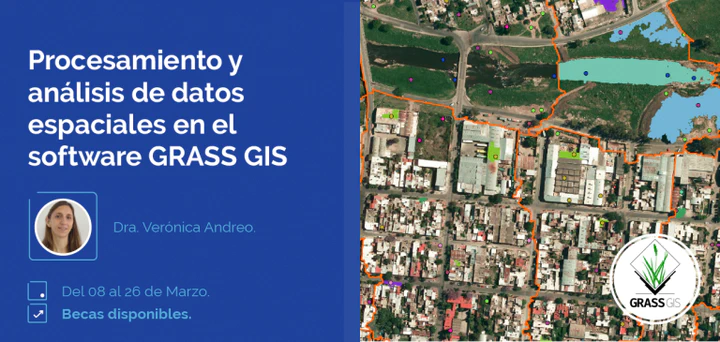Outcomes of an online GRASS GIS course

In March 2021, I taught a GRASS GIS online workshop as part of the distance learning offer of Gulich Institute (CONAE - UNC) in Argentina. We had a total of 65 students from different countries in South America.
During the workshop, we studied different topics within GRASS ecosystem, but we mostly covered remote sensing, Object Based Image Analysis (OBIA) and time series analysis, making use of GRASS GIS extensions to obtain and process Landsat, Sentinel and MODIS data. All the workshop materials, including presentations, code, and data, are available here (in Spanish).
As final assignment to pass the course and get their certificate, students were given two options:
- write a report in Spanish for which they should pick a topic of interest, find relevant data and use GRASS modules to obtain results or,
- write a tutorial in English of a topic relevant for them or even something new they wanted to learn, always with GRASS as main tool/focus.
As an incentive, the best reports and tutorials would be given the chance to be presented live through Gulich Institute Youtube channel. Tutorials, because of the extra difficulty of language, would also be highlighted in GRASS GIS website and social media (See the news here).
The topics chosen by the students were diverse and really interesting: from changes in snow cover in southern Argentina, to productivity of high altitude grasslands, wildfire simulations, segmentation to aid digitizing of implanted forests, network analysis, comparison of classification approaches to map urban areas, landscape characterization, urban heat islands, spatial and temporal gap-filling and species identification through OBIA and machine learning.
On May 14, those reports and tutorials that resulted selected were presented live with an audience of almost 90 people. It was really satisfying to witness the student’s learning process and outcome. Many of them overcame installation difficulties, learnt and studied new modules, searched for data, explored different solutions. Some, even moved to Linux and learnt to use Git/GitHub. Have a look 🤓
With this post I would like to encourage others to follow such an approach that resulted rewarding in many aspects. For students to get their work showcased, for their families to see aunt/uncle, mum or dad on the screen (we had some very sweet messages in the online chat 😃), and also for us as teachers/trainers. Furthermore, I believe these events bring science, higher education and technology closer to the general public and… we never know who might be inspired by our work! 😍